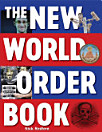Transnational Activism and National Movements in Latin America: Bridging the Divide
About this ebook
This volume addresses this significant gap in the literature on transnational collective action by building on approaches that stress the multi-level characteristics of transnational relations. Edited by noted Latin American politics scholar Eduardo Silva, the contributions focus on four distinct themes to which the empirical chapters contribute: Building a Transnational Relations Approach to Multi-Level Interaction; Transnational Relations and Left Governments; North-South and South-South Linkages; and The "Normalization" of Labor.
Bridging the Divide
will add considerably to empirical knowledge of the ways in which transnational and national factors dynamically interact in Latin America. Additionally, the mid-range theorizing of the empirical chapters, along with the mix of positive and negative cases, raises new hypotheses and questions for further study.About the author
Eduardo Silva holds the Friezo Family Foundation Chair in Political Science, is Professor of Political Science and a Research Associate of the Center for Inter-American Policy and Research at Tulane University. He is the author of Challenging Neoliberalism in Latin America (Cambridge University Press, 2009) and The State and Capital in Chile (Westview, 1996). His articles have appeared in World Politics, Comparative Politics, Development and Change, Latin American Politics and Society, Latin American Research Review, Journal of Latin American Studies.






